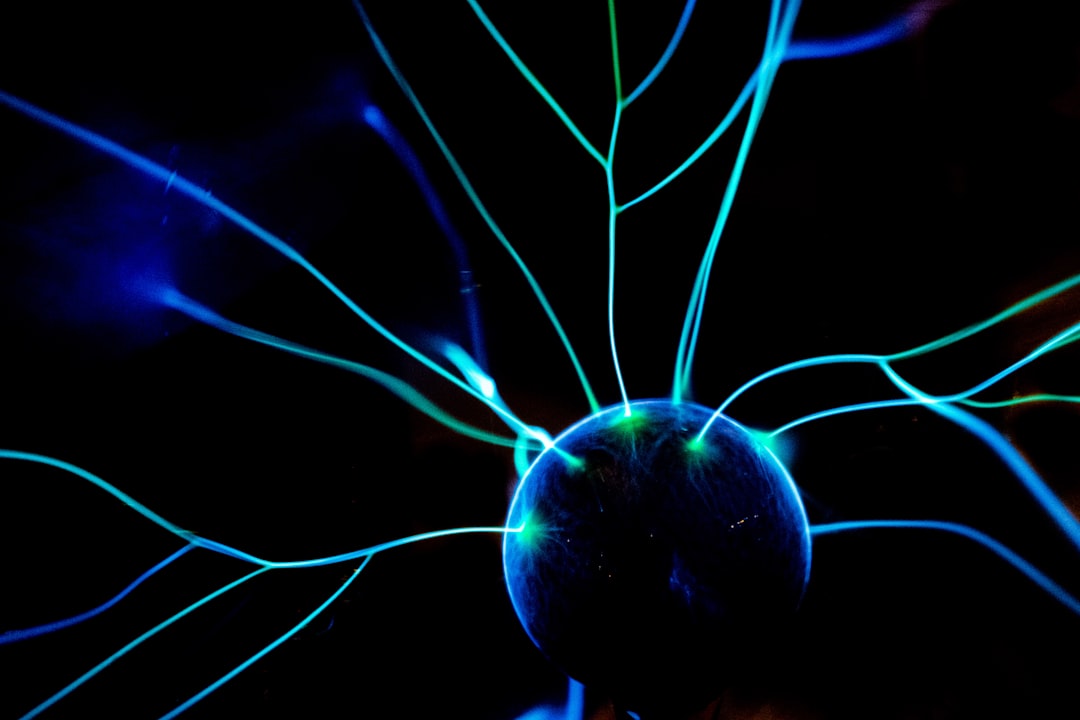As you delve into the fascinating world of quantum mechanics, you may find yourself captivated by its implications not only in the realm of physics but also in understanding the complexities of the human brain. Quantum mechanics, the branch of physics that deals with the behavior of matter and energy at the smallest scales, challenges our classical intuitions about reality. It introduces concepts that seem almost surreal, such as particles existing in multiple states simultaneously and the instantaneous connection between distant particles.
When you consider the brain, an organ that orchestrates your thoughts, emotions, and actions, the intersection of quantum mechanics and neuroscience opens up a realm of possibilities that could redefine your understanding of consciousness and cognition. The brain is often likened to a highly sophisticated computer, processing vast amounts of information and generating complex behaviors. However, as you explore deeper into its workings, you may begin to wonder if classical models are sufficient to explain its intricacies.
The idea that quantum mechanics could play a role in brain function is both intriguing and controversial. It invites you to question the very nature of consciousness and how it arises from the physical processes within your brain. This article will take you on a journey through the various ways quantum mechanics might illuminate the mysteries of the brain, from quantum entanglement to quantum consciousness.
Key Takeaways
- Quantum mechanics offers a novel framework to understand brain functions beyond classical physics.
- Phenomena like entanglement, superposition, and tunneling may explain complex neural communication and processing.
- Quantum coherence could be key to how the brain maintains stability and integrates information.
- The concept of quantum consciousness suggests a fundamental link between quantum processes and human awareness.
- Emerging fields like quantum computing and quantum psychology explore practical and theoretical implications for cognition and health.
The Quantum Brain: How Quantum Mechanics Applies to the Brain
As you consider the concept of a “quantum brain,” it becomes essential to understand how quantum mechanics might apply to neural processes. One of the most compelling ideas is that certain brain functions could be influenced by quantum phenomena, such as superposition and entanglement. This perspective suggests that your brain may not merely operate on classical principles but could also harness the peculiarities of quantum mechanics to enhance its capabilities.
For instance, some researchers propose that microtubules—tiny structures within neurons—could facilitate quantum processes, potentially allowing for faster information processing and more complex decision-making. You might find it fascinating to explore how these quantum processes could manifest in cognitive functions like memory and perception. If your brain can indeed utilize quantum mechanics, it may explain why human cognition often appears to transcend mere computation.
The ability to hold multiple ideas or possibilities in mind simultaneously could be a reflection of quantum superposition at work. This perspective not only challenges traditional views of neuroscience but also invites you to reconsider what it means to think and be conscious.
Quantum Entanglement and the Brain: How Particles in the Brain Communicate

Quantum entanglement is one of the most perplexing phenomena in quantum mechanics, where particles become interconnected in such a way that the state of one instantly influences the state of another, regardless of distance. As you ponder this concept in relation to the brain, you may begin to appreciate how entangled particles could facilitate communication between neurons or even across different regions of the brain. This idea posits that your brain’s neural networks might not just rely on classical synaptic connections but could also leverage quantum entanglement to enhance communication efficiency.
Imagine a scenario where entangled particles within your brain allow for instantaneous information transfer between distant neurons. This could lead to faster processing speeds and more integrated cognitive functions. You might find it intriguing to consider how this could impact your ability to solve complex problems or make decisions.
If entanglement plays a role in neural communication, it could provide a biological basis for phenomena such as intuition or sudden insights—moments when solutions seem to emerge from nowhere.
Quantum Superposition and the Brain: How the Brain Can Exist in Multiple States at Once
| Metric | Description | Value/Range | Unit | Notes |
|---|---|---|---|---|
| Quantum Coherence Time in Brain Microtubules | Estimated duration quantum states remain coherent in microtubules | 10^-6 to 10^-3 | seconds | Varies based on temperature and environmental noise |
| Number of Neurons | Total neurons in the human brain | ~86 billion | count | Potential sites for quantum effects |
| Superposition States per Neuron | Estimated quantum states a single neuron could theoretically exist in simultaneously | 2 to 10 | states | Highly speculative and theoretical |
| Quantum Entanglement Scale | Distance over which entanglement might occur in brain structures | nanometers to micrometers | length | Limited by decoherence in biological environment |
| Temperature of Brain | Average human brain temperature | 37 | °C | Challenges maintaining quantum coherence |
| Decoherence Time in Biological Systems | Time quantum states survive before decohering in warm, wet environments | 10^-13 to 10^-9 | seconds | Generally too short for cognitive processing |
Quantum superposition is another cornerstone of quantum mechanics, allowing particles to exist in multiple states simultaneously until measured or observed. When you apply this concept to the brain, it raises intriguing questions about how you process information and make decisions. Could it be that your brain operates in a state of superposition, holding various potential outcomes in balance until a choice is made?
This idea suggests that your cognitive processes might be more fluid and dynamic than previously thought. Consider how you often weigh multiple options before arriving at a decision. If your brain can indeed exist in a superposition of states, it may explain why some decisions feel more intuitive or spontaneous than others.
You might find yourself reflecting on moments when you suddenly “knew” what choice to make, as if all possibilities converged into one clear path. This perspective not only enriches your understanding of decision-making but also invites you to explore how embracing uncertainty can lead to greater creativity and insight.
Quantum Tunneling and the Brain: How Particles in the Brain Can Overcome Barriers
Quantum tunneling is a phenomenon where particles can pass through energy barriers that would typically be insurmountable according to classical physics. As you contemplate this concept in relation to brain function, it opens up exciting possibilities for understanding how information is processed and transmitted within neural networks. Imagine if certain particles within your brain could “tunnel” through barriers between neurons, facilitating communication and enhancing cognitive efficiency.
This idea could have profound implications for understanding how you learn and adapt. If your brain can utilize quantum tunneling, it may explain why some insights or solutions seem to emerge effortlessly, bypassing traditional cognitive hurdles. You might find it fascinating to consider how this mechanism could contribute to creativity or problem-solving abilities, allowing you to break free from conventional thought patterns and explore new avenues of understanding.
Quantum Coherence and the Brain: How the Brain Maintains Stability and Order

Quantum coherence refers to the phenomenon where particles maintain a consistent phase relationship, allowing them to function as a unified system.
As you explore this concept, you may begin to appreciate how coherence might contribute to your overall cognitive function and emotional well-being.
Imagine your brain as a symphony orchestra, where each neuron plays its part in harmony with others. If coherence is present, it allows for synchronized activity that enhances communication and processing efficiency. You might find it intriguing to consider how disruptions in coherence could lead to cognitive disorders or emotional instability.
By understanding the role of quantum coherence in brain function, you may gain insights into potential therapeutic approaches for enhancing mental health and cognitive performance.
Quantum Consciousness: The Role of Quantum Mechanics in Human Consciousness
The concept of quantum consciousness posits that quantum mechanics may play a fundamental role in understanding human consciousness itself. As you delve into this idea, you may find yourself grappling with profound questions about what it means to be aware and self-aware. Could it be that consciousness arises from quantum processes occurring within your brain?
This perspective challenges traditional views that see consciousness as merely an emergent property of complex neural networks. You might find it compelling to explore how quantum consciousness could explain phenomena such as altered states of awareness or mystical experiences. If consciousness is indeed intertwined with quantum mechanics, it opens up new avenues for understanding not only your own experiences but also the nature of reality itself.
This exploration invites you to reflect on the interconnectedness of all things and how your consciousness might be part of a larger quantum tapestry.
Quantum Computing and the Brain: How the Brain Processes Information Like a Quantum Computer
As you consider the parallels between quantum computing and brain function, it becomes evident that both systems operate on principles that defy classical logic. Quantum computers leverage superposition and entanglement to process information in ways that traditional computers cannot match. Similarly, your brain may utilize these quantum principles to enhance its processing capabilities, allowing for more complex thought patterns and problem-solving strategies.
Imagine if your brain functions like a quantum computer, capable of exploring multiple solutions simultaneously rather than sequentially evaluating each option. This perspective could revolutionize our understanding of intelligence and creativity, suggesting that human cognition is inherently more powerful than previously believed. You might find yourself reflecting on how this insight could impact fields such as artificial intelligence or education, as we strive to harness the full potential of both human and machine intelligence.
Quantum Healing and the Brain: How Quantum Mechanics May Impact Health and Wellness
The intersection of quantum mechanics and health is an emerging field that invites you to explore how these principles might influence well-being and healing processes within your body and mind. Quantum healing suggests that by understanding the quantum nature of reality, individuals can tap into their innate healing abilities. As you contemplate this idea, consider how your thoughts and emotions might influence your physical health at a fundamental level.
You may find it intriguing to explore practices such as meditation or mindfulness through a quantum lens. If consciousness has a quantum basis, then your mental state could directly impact your physical health by influencing cellular processes or energy fields within your body. This perspective encourages you to take an active role in your health journey, recognizing that your thoughts and intentions can shape your well-being in profound ways.
Quantum Psychology: Exploring the Relationship Between Quantum Mechanics and Human Behavior
Quantum psychology is an emerging field that seeks to bridge the gap between quantum mechanics and human behavior. As you explore this relationship, you may begin to appreciate how quantum principles can inform our understanding of psychological phenomena such as perception, decision-making, and interpersonal relationships. This perspective challenges traditional psychological models by introducing concepts like uncertainty and interconnectedness into our understanding of human behavior.
Imagine how embracing uncertainty could lead to greater resilience and adaptability in your life. If human behavior is influenced by quantum principles, it suggests that you have more agency over your choices than previously thought. You might find yourself reflecting on how this insight can empower you to navigate challenges with greater confidence and creativity.
The Future of Quantum Mechanics and the Brain: Potential Applications and Implications
As you look toward the future, the potential applications of integrating quantum mechanics with our understanding of the brain are both exciting and profound. From advancements in mental health treatments to breakthroughs in artificial intelligence, exploring this intersection could lead to transformative changes in various fields. You may envision a world where therapies harnessing quantum principles become commonplace, offering new hope for those struggling with mental health issues or cognitive disorders.
Moreover, as research continues to unfold, you might find yourself contemplating ethical implications surrounding these discoveries. The merging of quantum mechanics with neuroscience raises questions about consciousness, free will, and what it means to be human. As we stand on the brink of new understandings about ourselves and our place in the universe, embracing these complexities will be essential for navigating the future landscape shaped by quantum insights into the brain.
The exploration of these ideas offers a glimpse into a future where science continues to unravel the mysteries of existence itself.
Recent research has begun to explore the intriguing connections between quantum mechanics and brain function, suggesting that quantum processes may play a role in consciousness. For a deeper dive into this fascinating topic, you can read more in the article available at Freaky Science. This article discusses various theories and experiments that bridge the gap between the complexities of quantum physics and the workings of the human mind.
WATCH THIS! Your Brain Is Not Real (The Receiver Theory)
FAQs
What is quantum mechanics?
Quantum mechanics is a fundamental theory in physics that describes the behavior of matter and energy at the smallest scales, such as atoms and subatomic particles. It explains phenomena that cannot be accounted for by classical physics, including wave-particle duality, superposition, and entanglement.
How is quantum mechanics related to the brain?
The relationship between quantum mechanics and the brain is a subject of ongoing research and debate. Some theories propose that quantum processes may play a role in brain function, particularly in consciousness and cognitive processes, but there is currently no definitive scientific consensus.
Are there any established quantum effects in brain activity?
While the brain operates at a scale where classical physics generally applies, some researchers have hypothesized that quantum effects could influence neural processes. However, direct evidence of quantum phenomena affecting brain activity remains limited and controversial.
What is the “quantum brain” hypothesis?
The “quantum brain” hypothesis suggests that quantum mechanical phenomena, such as superposition or entanglement, might be involved in brain functions like consciousness or decision-making. This idea is speculative and not widely accepted in mainstream neuroscience.
Can quantum mechanics explain consciousness?
Some theories, like the Orch-OR (Orchestrated Objective Reduction) model, propose that quantum processes in microtubules within neurons contribute to consciousness. However, these theories are highly debated and lack conclusive experimental support.
What challenges exist in studying quantum effects in the brain?
Studying quantum effects in the brain is challenging due to the brain’s warm, wet, and noisy environment, which tends to disrupt delicate quantum states. Additionally, measuring quantum phenomena at the scale of neural processes is technically difficult.
Are there practical applications of quantum mechanics in neuroscience?
Currently, quantum mechanics primarily informs theoretical models rather than practical applications in neuroscience. However, advances in quantum computing and quantum sensing may eventually contribute to brain research and medical imaging technologies.
Where can I learn more about quantum mechanics and the brain?
To learn more, consider reading scientific literature on quantum biology, neuroscience, and physics. Academic journals, university courses, and reputable science websites provide detailed information on ongoing research in this interdisciplinary field.
